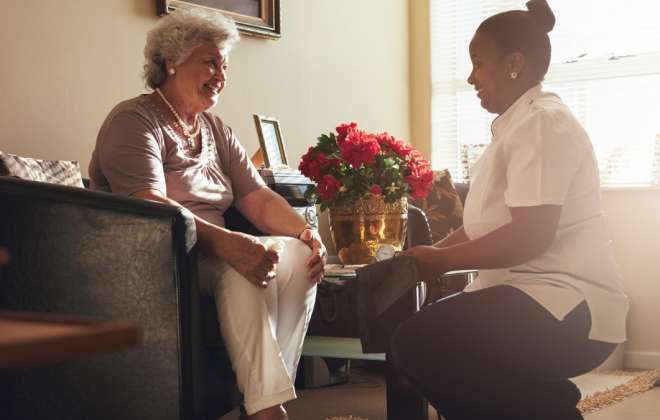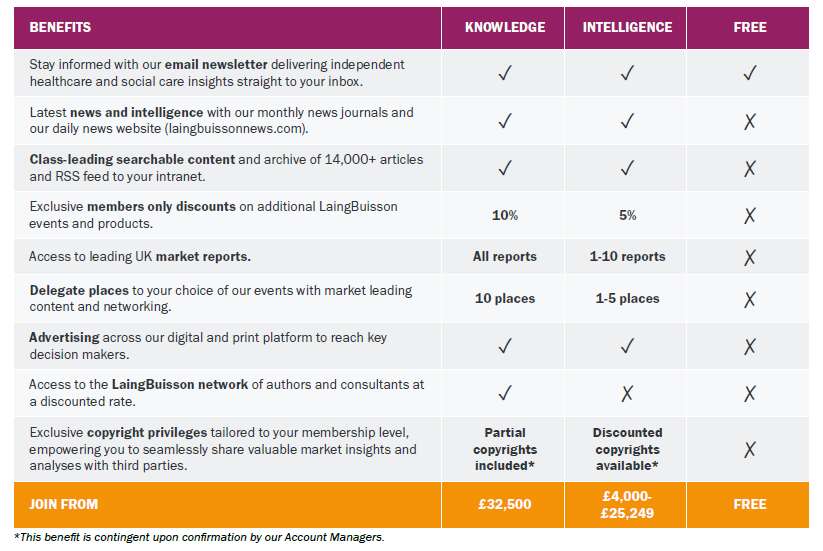Frustration at NHS waiting lists drives people to pay for their own healthcare
Leading healthcare business intelligence company, LaingBuisson has published the first edition of its Private Healthcare Self Pay UK market report, in association with GoPrivate.com
The new report shows a buoyant and growing market for self pay surgery and treatment, accounting for £1.1 billion of revenue for independent hospitals and clinics in 2017, up 9% on the previous year, and representing significant growth on 2013 when the self pay market was reported to be worth £493 million.
The NHS continues to be an important provider of self-pay treatment. NHS revenues from private patients is estimated at £620 million in 2016/17, a growth of £59 million over the preceding two years. This is mainly in the larger, well-established NHS private patient units, principally in London and Manchester.
Cosmetic surgery is estimated to account for around 25% of self pay revenue.
Key drivers for this growth include the cancellation of elective procedures owing to pressure created by non-elective admissions in the NHS. This is coupled with increasingly restrictive funding criteria for elective procedures on the NHS, especially in orthopaedics, ophthalmology, gastroenterology, gynaecology and urology. Restrictions on access to NHS funding for cancer drugs is fuelling growth in self pay oncology. NHS England data shows that there were more than 4.1 million patients waiting for planned NHS surgery at the end of September 2018, the highest number since 2007 and an increase of 6% compared with 12 months earlier.
Independent healthcare providers are also more actively promoting their services, demonstrating that private healthcare is affordable even for those without private medical insurance. Prices for ‘fixed price surgery’ are now published on the websites of all major private providers. In addition, in the past 18 months new types of service are being offered, including direct access to private GPs, diagnostics and consultants; these are a growing and important part of the self pay market.
Strongest growth in opting to pay for healthcare is observed in the over 60s. Greater disposable income coupled with better information about the cost of paying privately for procedures means they are able to make informed choices about their healthcare and to choose not to have private medical insurance.
For patients seeking prompt access to private treatment, it pays to ‘shop around’. There are wide price variations for ‘fixed price surgery’ across the UK:
- The price of a total knee replacement varies from £9,559 to £15,202. The average price for a hip replacement is £11,468
- The price of cataract surgery for one eye varies from £1,650 to £3,535. The average price is £2,464
Geographically, the central London self-pay market is strongest, and is estimated to be growing at around 25% per year. This is attributed mainly to inbound medical tourism to the capital, though there is speculation that this is softening as fewer patients from the Gulf states make the journey for treatment. There is also anecdotal evidence that UK self-pay patients are opting for treatment in the Home Counties rather than paying the premium for central London.
Report author, Liz Heath, said:
“Better marketing by independent hospitals is making people realise that they do not have to wait for treatment on the NHS nor do they need private medical insurance to access treatment, especially as many providers also offer payment plans. We expect growth to continue, not only where the alternative is a long and possibly painful wait, but also for those services that bring peace of mind, such as an earlier, more convenient GP appointment or diagnostic tests. While the NHS is still highly valued and much loved, it demonstrates that people will use information to make informed healthcare choices, especially for more affordable procedures, and ‘mix and match’ by selectively self-paying or choosing to wait for NHS funded care.”







